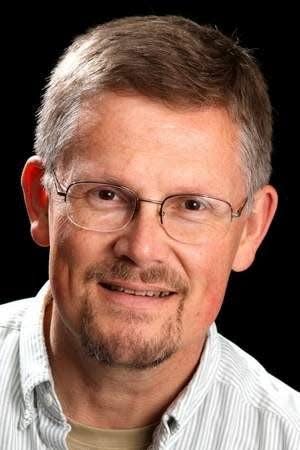Faith Works: State funerals and sacred occasions
- Oops!Something went wrong.Please try again later.
Princess Diana’s death in 1997 did not lead to a state funeral, although many remember it that way.
The nuances of a royal ceremonial funeral versus a state funeral are probably beyond most of us, but it’s worth noting that the United Kingdom actually hasn’t had a true “state funeral” since 1965, when Winston Churchill died. The Queen Mother and Prince Philip also had royal ceremonies but not a state funeral per se.
What makes the key difference is, obviously, the involvement of the state itself, and in the case of the UK an act of Parliament. Queen Elizabeth II as ruler of the United Kingdom will certainly have a state funeral.

In the United States, we have a slightly looser set of guidelines for such things, but not that much looser. A state funeral is generally only for Presidents; the set of rituals around a state funeral largely were born around the assassination of Abraham Lincoln in 1865 and his extended memorials from lying in state under the Capitol rotunda to his burial in Springfield, Illinois.
General Douglas MacArthur was granted a state funeral in 1964, and other than former presidents, the last such was for Justice Ruth Bader Ginsburg in 2020. State funerals were also held for the Unknown Soldiers now at rest in Arlington National Cemetery.
My earliest memories of national news are not of the death of John F. Kennedy, but I recall bits and pieces of his 1963 funeral: the riderless horse with reversed boots in the stirrups, John-John about my age stepping forward to salute his father’s casket.
What I first recall actually as a funeral was the one I saw in black and white from across the globe as the Vatican laid to rest Pope John XXIII a few months later. The open casket, the incense, the music was all quite striking to a young child.
At the end of January, 1967, many of the same elements of memorial and honors were seen in the funerals for the astronauts of Apollo I, with two at Arlington and one at the West Point Cemetery. The riderless horse, the honor guards, the salutes all seen on TV were my first experience of what I had yet to experience in person.
When military honors are given to a veteran, we participate in small ways in the larger traditions of state funerals. The flag draping the casket, a three volley salute with “Taps” played, the honor guard and presentation of the flag to the next-of-kin: all of these rituals connect any cemetery in the world to Arlington and the nation’s Capitol, including the traditional phrase as the flag is presented:
“On behalf of the President of the United States, the (name of service branch), and a grateful nation, please accept this flag as a symbol of our appreciation for your loved one's honorable and faithful service.”
In any funeral today, family members will seek to make connections between their grief and the mourning rituals they’ve seen and shared before. The challenge for many of us in conducting memorials is that it is more and more common for people to have relatively little experience with previous funerals, and their expectations are more oriented towards public events — like the services for Princess Diana — than a traditional family funeral. Smaller families and people spreading out adds up to not a few people reaching their 30s or 40s never having attended a funeral, and suddenly they have to plan one.
Some religious traditions have a liturgy, a very specific process through which the readings and speakers and acts of the attendees is already laid out. Many liturgical traditions will minimize personal stories about the deceased, guiding those sorts of speeches to a wake the evening before, or a community meal afterwards.
But the majority of people working out a plan for a funeral are not calling on such traditions, even as they have few of their own. As a preacher from a less liturgical tradition, I have plenty of latitude to work with, but the breadth can be overwhelming for a family as they grieve.
When it can get complicated is where people ask “can we do this thing I saw on TV?” Pop music used to be almost unheard of in funerals even outside of churches, but since Elton John sang for Princess Diana’s, it has become quite common.
Have you planned your funeral service? It probably won’t be much like Queen Elizabeth’s…
Jeff Gill is a writer, storyteller, and preacher in central Ohio; yes, he’s got his funeral outline planned, how about you? Tell him what you want or don’t want at knapsack77@gmail.com or follow @Knapsack on Twitter.
This article originally appeared on Newark Advocate: Faith Works: State funerals and sacred occasions
